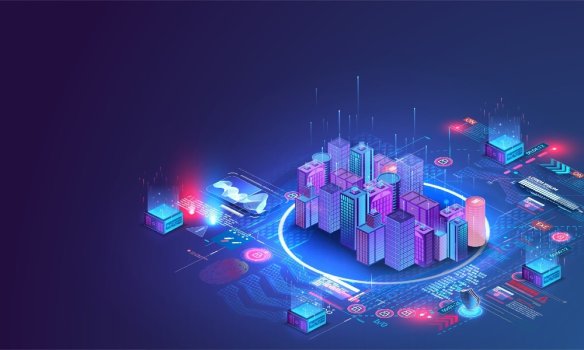In recent years, we've seen a drastic increase in smart technology aimed at making our lives easier. These innovations focus on improving our physical health, public safety, environmental conditions and more. From smartphones and appliances to smart grids, consumers and businesses today are leveraging the newest technologies to add convenience and efficiency to their daily routines.
Overall, digital transformation isn’t necessarily new, it represents a major shift in the way a company or a consumer engages with technology, and in recent years the rapid adoption of technology has become standard practice. In 2022, spending on digital transformation is projected to reach 1.78 trillion U.S. dollars, while between 2020 and 2023, direct digital transformation investments are forecast to amount to almost 7 trillion U.S. dollars.
As consumers and companies alike continue to bring in more technology, smart hub devices are only becoming more essential with every passing day. A smart hub is hardware or software that connects devices on an automation network and controls communications among them. Smart hubs, which connect either locally or to the cloud, are useful for internet of things (IoT) devices that use the Zigbee or Z-Wave protocols or Bluetooth, all of which are in demand with the growing adoption of technology.
Continue reading: https://www.iotevolutionworld.com/iot/articles/450224-small-the-new-big-faster-smarter-connectivity-compute.htm
Overall, digital transformation isn’t necessarily new, it represents a major shift in the way a company or a consumer engages with technology, and in recent years the rapid adoption of technology has become standard practice. In 2022, spending on digital transformation is projected to reach 1.78 trillion U.S. dollars, while between 2020 and 2023, direct digital transformation investments are forecast to amount to almost 7 trillion U.S. dollars.
As consumers and companies alike continue to bring in more technology, smart hub devices are only becoming more essential with every passing day. A smart hub is hardware or software that connects devices on an automation network and controls communications among them. Smart hubs, which connect either locally or to the cloud, are useful for internet of things (IoT) devices that use the Zigbee or Z-Wave protocols or Bluetooth, all of which are in demand with the growing adoption of technology.
Continue reading: https://www.iotevolutionworld.com/iot/articles/450224-small-the-new-big-faster-smarter-connectivity-compute.htm

